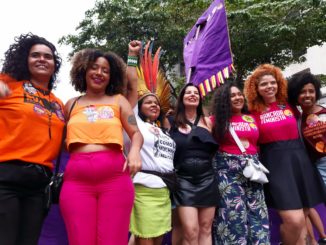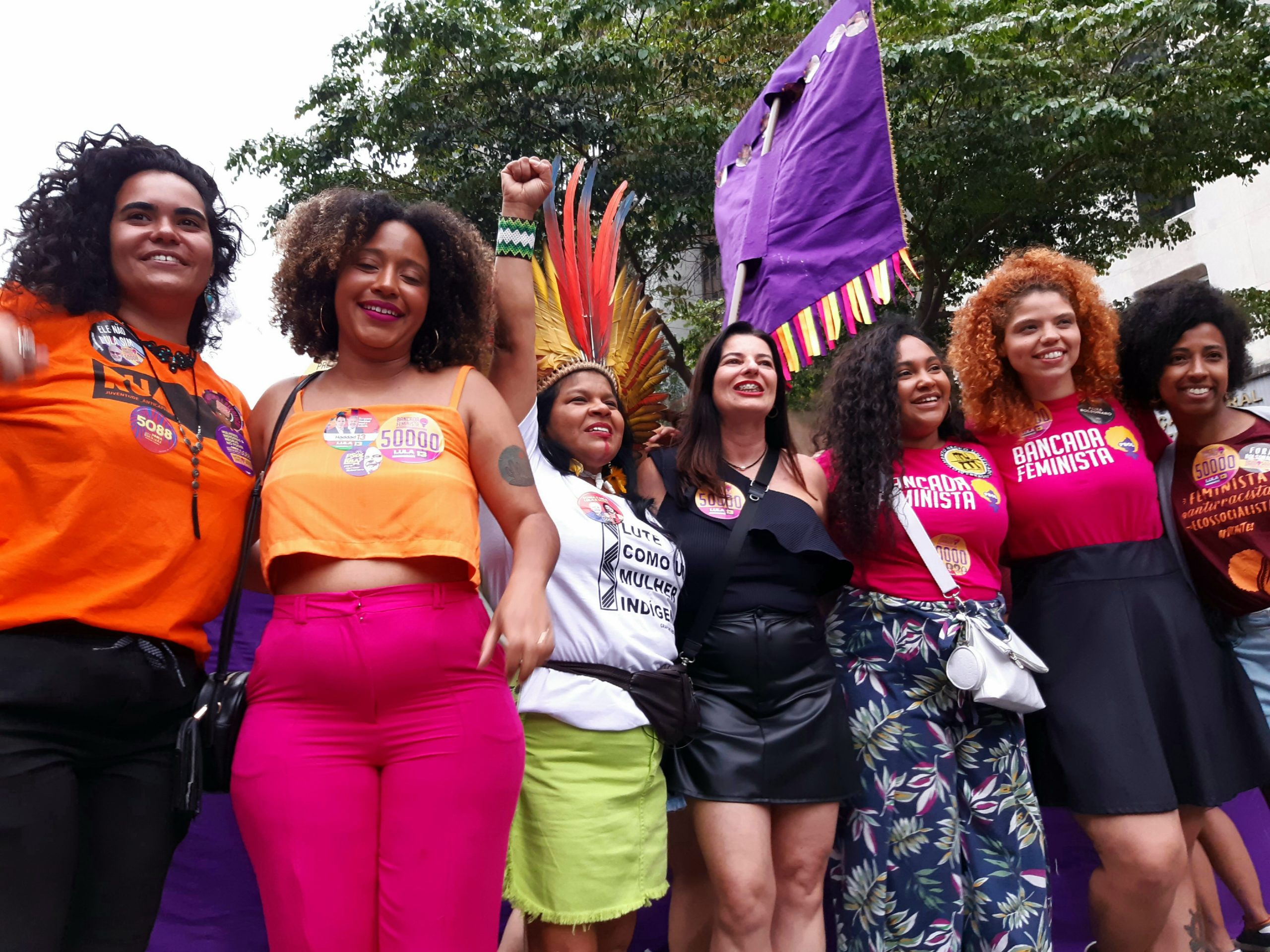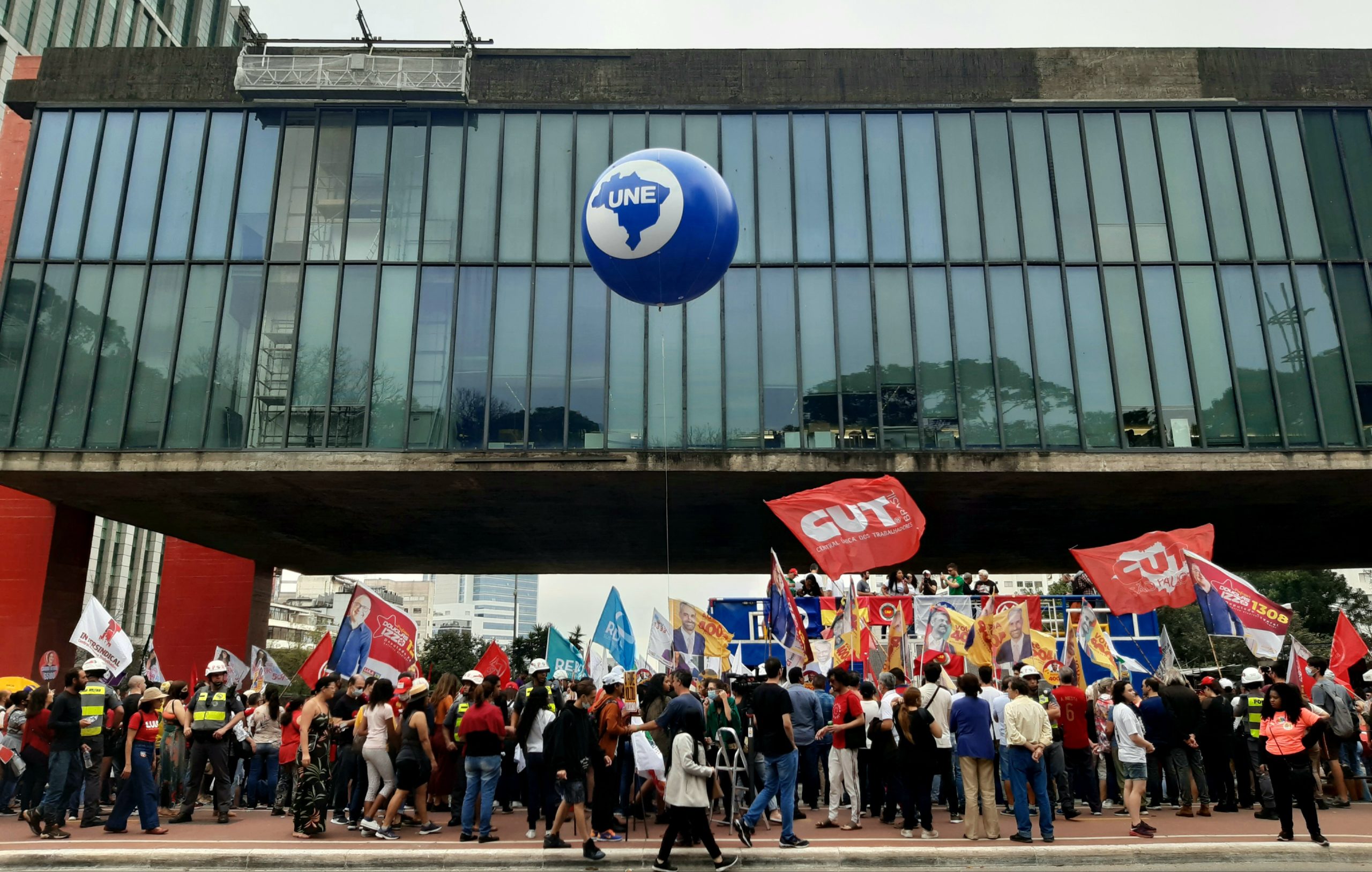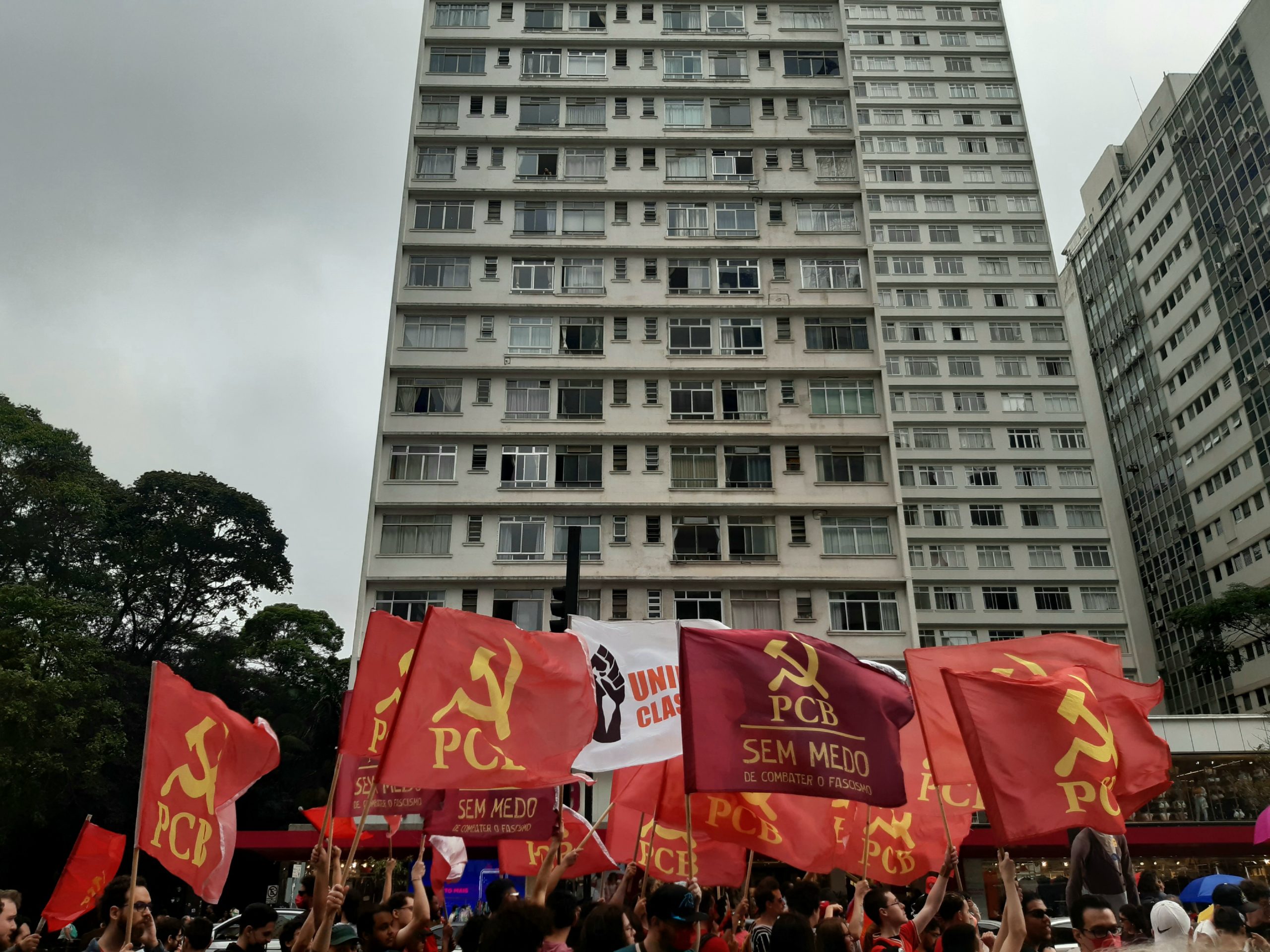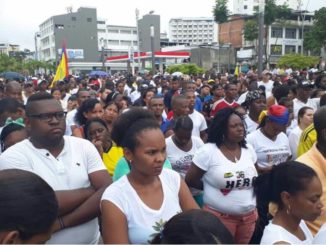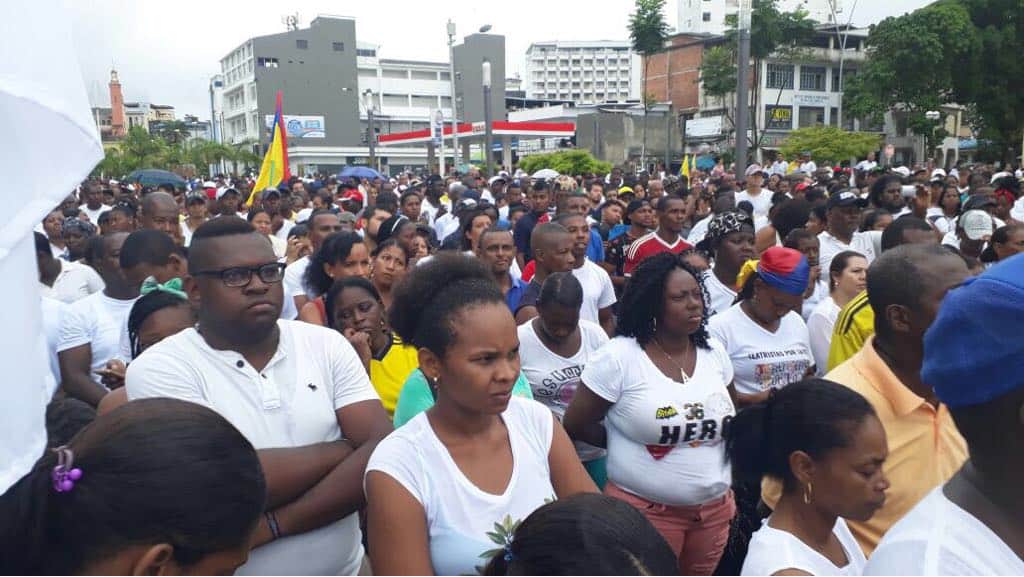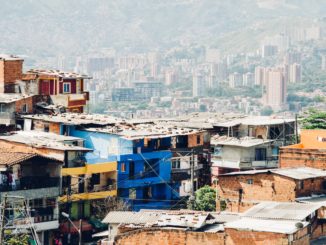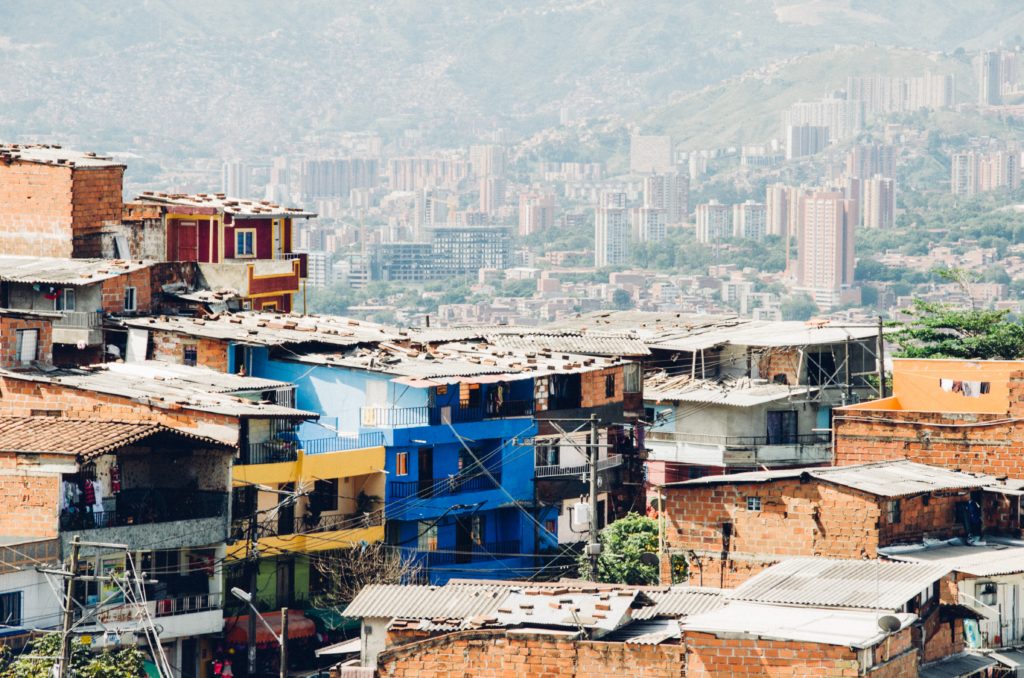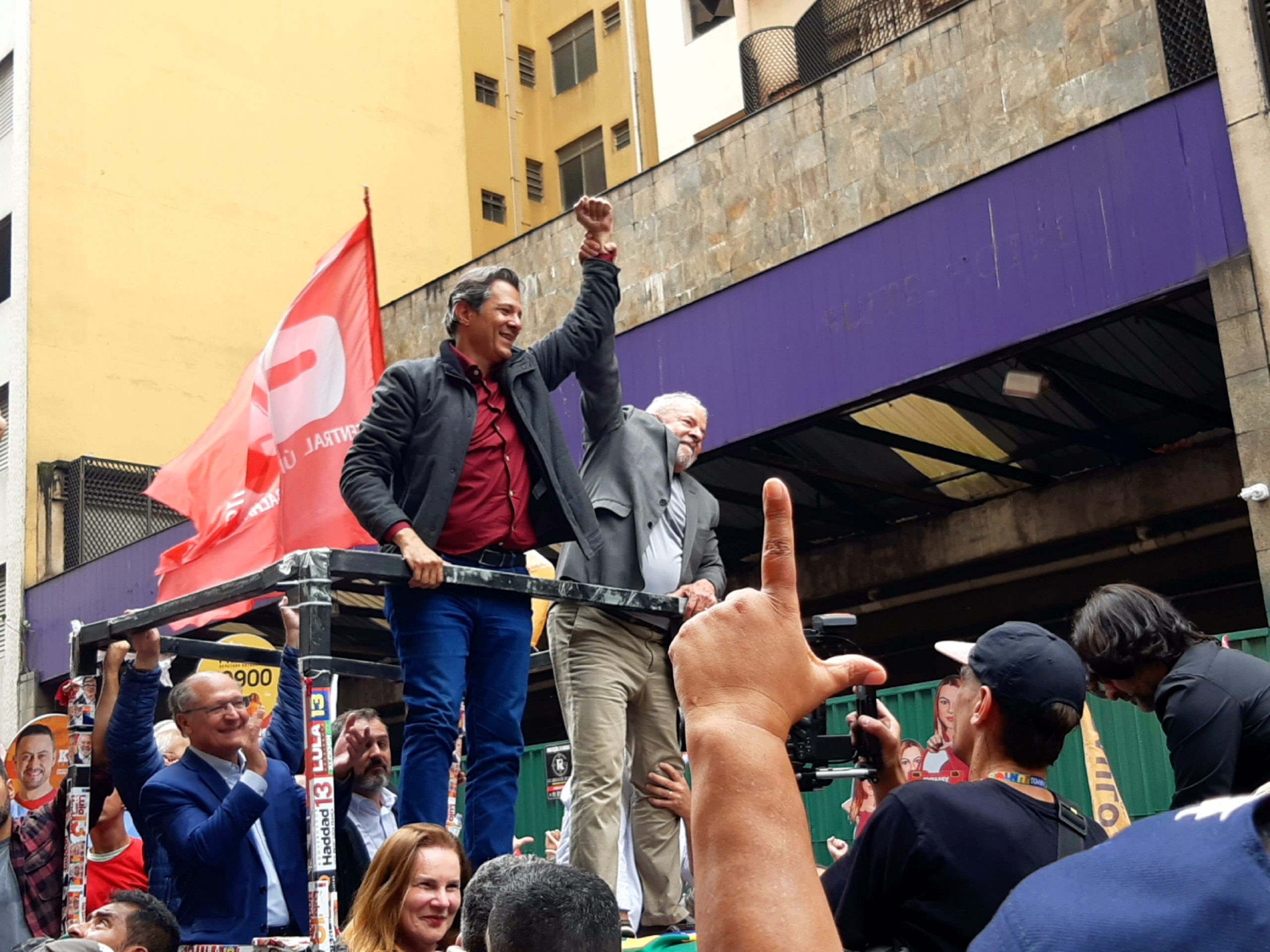
SÃO PAOLO, Brazil—What began as loud cheers mellowed out as election results were announced outside the CNN Brasil headquarters on October 2. Laughs merged into murmurs as onlookers began to hug each other.
It had become clear to the crowd of hundreds of “petistas,” or Workers’ Party (PT) supporters, that PT presidential candidate Luiz Inácio “Lula” da Silva—whom the Brazilian left had rallied behind—would have to fight a second round on October 30 against incumbent President Jair Bolsonaro.
Two middle-aged female petistas mourned when their state—Rio—elected a Bolsonarista governor.
“The poor don’t know how to vote,” one snapped in response to her friend, who had her face in her hands.
Some Brazilians’ desire to climb class rungs has helped win votes for Bolsonaro and his Liberal Party (PL) colleagues at the local and legislative levels of government. This, despite an appetite for progressive politics after four years of what City University of New York professor Danny Shaw described to Toward Freedom as the “underpinnings and trappings of fascist rule” as well as hundreds of thousands of avoidable COVID-19 deaths.
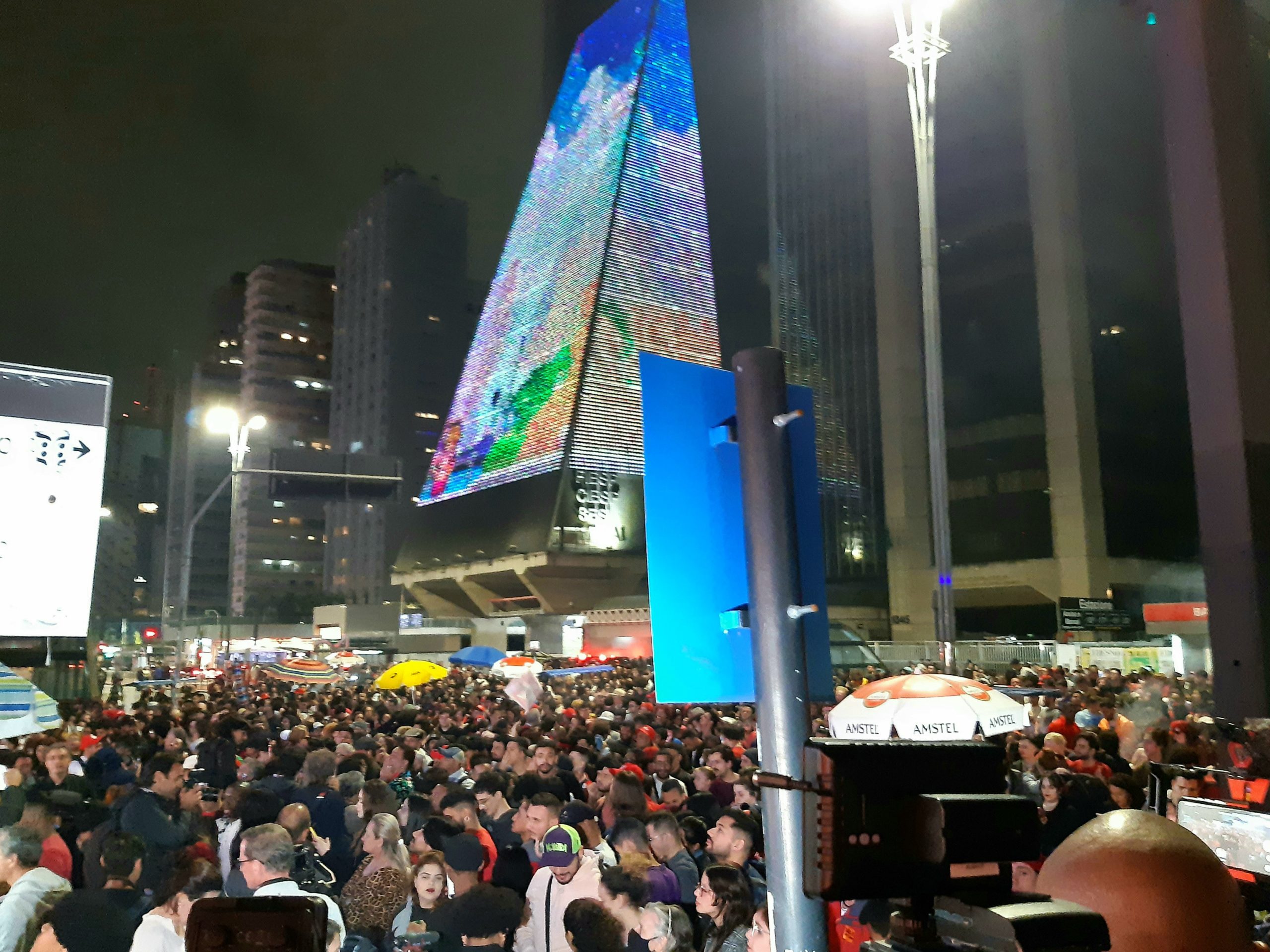
Lula’s Strategy ‘Has Not Paid Off’
Bolsonaro had garnered more votes than polls had predicted. During this year, neither of the leading pollsters—Datafolha and IPEC—showed Bolsonaro polling above 34 percent or 31 percent, respectively. In the end, Bolsonaro received 43.2 percent of votes and Lula 48.4 percent.
London School of Economics urban geographer Matthew Aaron Richmond said Bolsonaro’s base has remained relatively diverse as well, at least in income. In Rio, for instance, Bolsonaro has retained his strength in the low-income peripheries, where churches and militias with links to the police have a fair amount of authority. The same retention is true for the moderate-income settlements around Brazil’s most-populated southeast region, like Santo André in São Paulo.
“This suggests that Lula’s strategy of winning over such voters with a moderate pitch and coalition building has not paid off as hoped,” Richmond tweeted.
The Brazilian Right’s Advantage
Although many have posited Brazil-specific reasons for Bolsonaro’s continued popularity, one bloc has been encouraging—even coercing—others to vote for Bolsonaro because it would benefit from the inequitable policies he prioritizes, such as privatizing state firms like Petrobras, and supporting agribusiness in a way that has harmed the environment.
Journalist and historian Benjamin Fogel said the election has revealed Bolsonarismo as a “solidified electoral bloc with a clear ideological vision—to dismantle what remains of Brazil’s diminishing state capacity by handing over the country to the police mafias, evangelical capos, big agro and all sorts of other dodgy private interests.”
This bloc began to show its might well before Bolsonaro’s presidential campaign, with the procedural coup against former President Dilma Rousseff in 2016 and the unlawful incarceration of Lula in 2018.
These kicked off the phenomenon of “antipetismo,” a campaign attacking the PT that has damaged government institutions and redistributive politics.
Revelations during this year’s campaign have shown Bolsonaro and his family have engaged in corrupt activities, including secretly siphoning off billions of Brazilian reals in health funding to pay off congresspeople to stop him being impeached.
Despite this, and the overturning of Lula’s imprisonment, many Bolsonaristas genuinely believe Lula and the PT are more corrupt than Bolsonaro.
The interest of many sectors of capital in keeping Bolsonaro in Brasilia has also meant many employers have illegally encouraged or asked their employees to vote for him. This is especially true in agrobusiness. Stara, an agricultural equipment company, sent staff letters this week predicting layoffs under a Lula government. As lawyer Rômulo Cavalcante told Toward Freedom, this is illegal.
The Class Effect
Bolsonaro’s links to big capital and Lula’s track record of strong redistribution as well as his base among the poor have impacted voting patterns. Some Brazilians who see themselves as middle class or hope to climb into that class voted for Bolsonaro. Not all of these people fit theorist Karl Marx’s definition of middle class because they don’t accrue wealth through others’ labor. That doesn’t change the fact, as author Hadas Thier alludes to, that they culturally identify as such.
Bolsonaro—often called “Trump of the Tropics”—is a favorite among Brazilian college graduates, according to a widely reported Datafolha poll.
This reporter’s friend said when his mother—a lawyer—asked him how he would vote and he replied ‘Lula,’ she retorted: ‘How could you? You have a degree!’
Voting out the PT is being viewed as a condition of being part of a better-off class, which partly explains Bolsonarismo’s endurance in places like Santo André in São Paolo.
The Strength of the Brazilian Left
Analysis has also shown that vote-buying has occurred, and many of the congress people who Bolsonaro has paid off have then themselves bought votes through clientelism and corruption.
That said, this election has also demonstrated strong Brazilian support for the left.
Brazil’s northeast has again come out strongly for the PT. Rosa Amorim was elected to the state of Pernambuco’s legislature, making her the first deputy to have grown up on one of many settlements of the Landless Rural Workers’ Movement (MTST), a housing-justice organization.
Further south in São Paulo, Guilherme Boulos, an MTST leader, received over a million votes as a Socialism and Liberty Party (PSOL) candidate for the Brazilian Chamber of Deputies.
Other PSOL candidates pulled through on Election Day, too. Sônia Guajajara is the first Indigenous person and Ediane Maria is the first domestic worker elected to São Paulo’s chamber. Erika Hilton, meanwhile, became the first transgender member of Brazil’s legislature.
Brazilians still support these movements that make Brazil a particularly fertile ground for progressive activism.
Capital’s Interests Beyond Bolsonaro
However, Brazil doesn’t exist in a vacuum, and it is not immune to the forces that affect any capitalist country.
As Shaw explained to Toward Freedom, “Six to 10 families control [Brazil’s] entire media apparatus.”
Some have suggested big capital’s interest goes beyond Bolsonaro. A third candidate, Simone Tebet of the centrist Brazilian Democratic Movement (MDB), received a disproportionate amount of airtime, suggested right-wing business advocate Brian Winter. Before the campaign, said Cavalcante, “she wasn’t known outside her state.” As journalist Brian Mier has suggested, a sector of capital wanted a viable candidate who wasn’t as incompetent as Bolsonaro, as redistributive as Lula, or as boring as candidate Ciro Gomes of the Democratic Labor Party.
After being knocked out on Sunday, Tebet endorsed Lula, who remains the favorite.
Back in front of the CNN Brasil headquarters on election night, Lula made an appearance after the crowd digested the result.
“It’s like destiny likes me having to work a bit more,” Lula said to a crowd that appeared to have grown to the low thousands because he showed up. “The campaign starts tomorrow… We are going to win these elections!”
As Maria told Toward Freedom, the left’s “abundant energy” will be up against a “giant force.” On October 30, we’ll find out which of the two will succeed.
Richard Matoušek is a journalist who covers sociopolitical issues in southern Europe and Latin America. He can be followed on Twitter at @RichMatousek and on Instagram at @richmatico.

